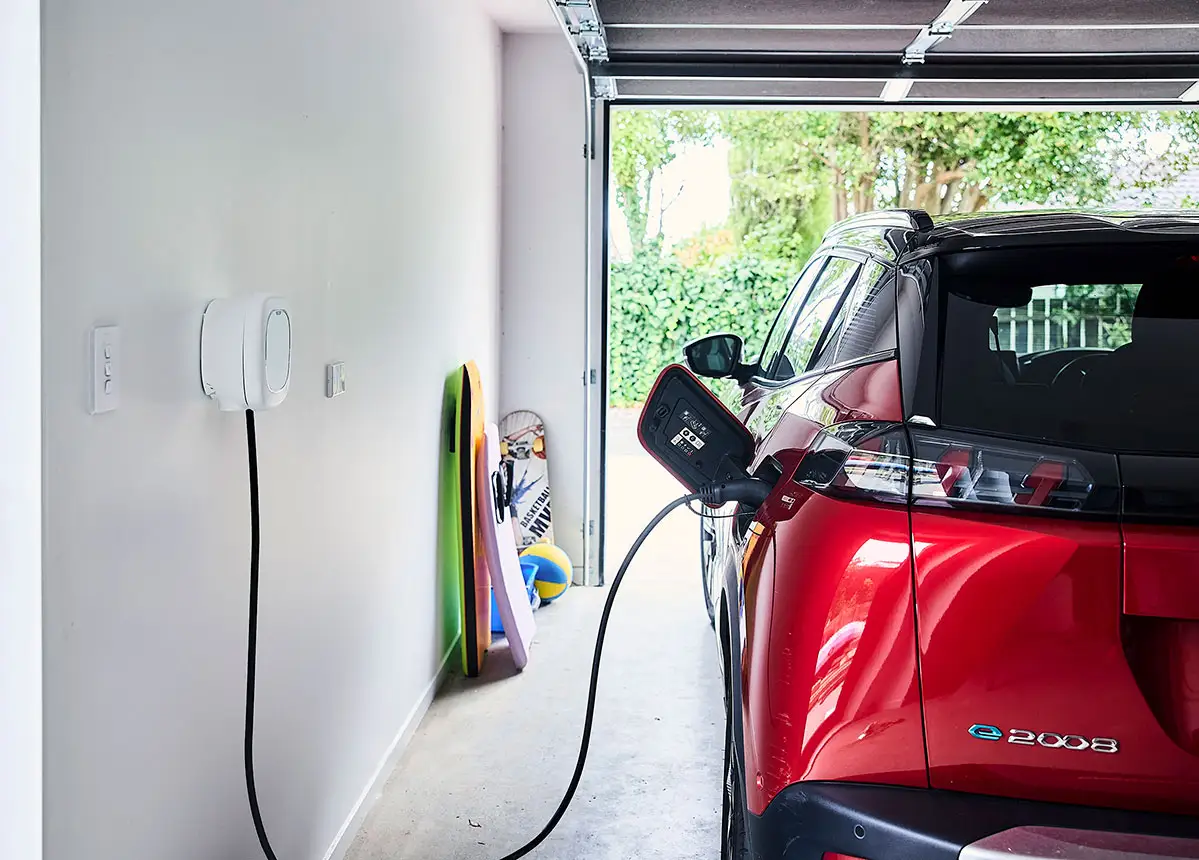Two thirds of EV owners in New Zealand charge their car with a 3-pin plug, but many people are now choosing to install a wall-mounted charger at home. A smart wall mounted charger will save time and money compared to other EV chargers.

What you need to know
-
When to buy
- At the same time as your new EV
- When you’re ready to upgrade your existing charger
-
Tech lifespan
10-15 years
-
Upfront costs
- $1000–$1500 (charger)
- $500–$1000 (installation)1
Why choose a smart wall charger
- Faster charging — Smart EV chargers can be at least 3x faster than a 3-pin plug – the basic charger type that often comes with your EV.
- Save money — Some electricity retailers offer EV plans, or time-of-use plans which reward consumers with cheaper rates at off-peak times of day. With a smart charger, you can programme charging start times to take advantage of this, and eventually power companies will offer plans for smart charger owners that automatically optimise charging to these off-peak times (which can vary day-to-day), meaning you will always charge at a lower-cost rate.
- Convenience — App connectivity lets you automate your charging preferences, as well as change them remotely. Programme your desired level and time of charge. You can ensure your car is always fully charged in time for next use – just set and forget. Your smart charger app also makes it easy to access your charging data.
- Cleaner — By setting your EV to charge off-peak, it is more likely to be charged with electricity generated from renewable sources. Smart charging is also more efficient than a 3-pin plug – you use less electricity to get the same level of charge.
- Safety — Smart chargers can ‘load balance’ your home’s electricity supply, which means that they can power down automatically when your household is using lots of power at once, reducing the risk of overload. This is especially important if the wiring in your home is older. Running long cables to your vehicle should be avoided at all costs.
Recommended EV chargers
Smart wall chargers are at least 3x faster than a 3-pin plug, they are much safer to use and save on electricity costs.
But they're not all created equal. EECA has published an approved list of EV chargers recommended for residential and commercial use. The list has been developed to help New Zealanders identify, and purchase, EV chargers that use 'smart' technology and are energy efficient.
Cost savings
Cost to travel 100km, including road user charges (RUCs)
- $19
for an EV charged by a public fast charger2
- $13
for an EV charged at home on a standard rate2
- $11
for an EV charged at home on an off-peak (overnight) rate2
Installation considerations
- Off-street parking — You can mount a smart charger on an internal or external wall, but you can’t run a cable across a footpath to the street. Choose an external wall if you keep your car in the driveway.
- Check your wiring — Engage an electrician/charger specialist to assess the current state of wiring in your home.
- Give your charger some space — Ensure there’s sufficient space on either side of your intended installation spot so the charger doesn’t overheat.
- Keep it within reach — Install the charger between 1.2-1.4m above ground level, ensuring you can read and touch the displays. Check the plug can reach both sides of your car, in case a future car has its port on the opposite side.
- Keep it out of the way — Install the charger out of your car’s path, and away from doorways or anywhere you might trip on the cables.
- Get a certificiate of compliance — Ensure you receive a certificate of compliance from your installer, including an electrical safety certificate.
Common questions
Make sure you're on the right power plan
Power companies offer plans that reward you for using energy during off-peak times, like nights and weekends, when demand across the country is lower. These plans typically offer free or discounted power at specific times, like after 9pm or during weekends. They are especially great for households that use more energy during off-peak hours, like charging EVs overnight.


